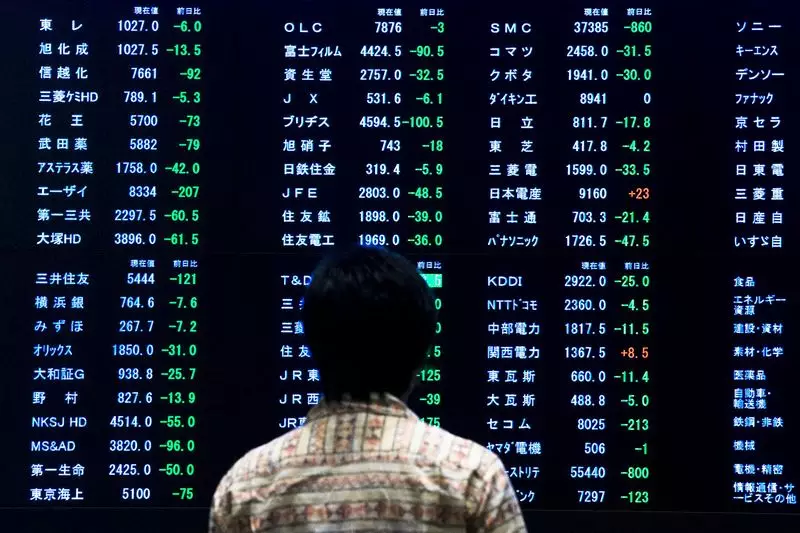In recent market movements, Asian stocks exhibited a generally positive trend, especially with Japan’s market showing notable strength. Fueled by a surprising rise in inflation figures, Japanese equities saw a significant uptick, underscoring investors’ growing optimism about potential monetary policy adjustments by the Bank of Japan (BoJ). Meanwhile, the contrasting performance of South Korean stocks has raised eyebrows, as ongoing political strife has led to a substantial decline in market confidence. This mixed tableau reflects broader economic signals that continue to influence investor sentiments across the region.
The economic landscape in Japan has recently shifted, highlighted by a significant rise in the consumer price index (CPI) in Tokyo, which exceeded expectations for December. This development has not only reinvigorated debates surrounding interest rate hikes by the BoJ but has also instigated a flurry of investor activity within the Japanese stock market. The Nikkei 225 index soared by 1.5% on Friday, tentatively moving towards a near 4% gain for the week. Such movements signal a potentially transformative period for Japan’s economic strategy, should the BoJ decide to undertake rate adjustments in light of burgeoning inflationary pressures.
Contributing to this optimistic outlook, the resilience of key automotive stocks, like Toyota, can be attributed to a weaker yen, enhancing their competitiveness abroad. Furthermore, even though Japan’s industrial output struggled with contractions, the rate was slower than anticipated, which suggests that broader economic conditions might stabilize in the near future. This dual trend of improving CPI alongside industrial output softness presents a nuanced picture that investors must navigate.
On the other hand, China’s stock market reflected a more tempered optimism with the Shanghai Composite and the CSI 300 indexes rising by 0.3% and 0.4%, respectively. However, the backdrop remains concerning. Despite official reports indicating that industrial profits in China fell at a diminishing rate, the pervasive issues of weak domestic demand linger as a formidable barrier to recovery efforts. The World Bank has recently revised upward its growth forecasts for China for both 2024 and 2025. However, the organization warns that sluggish consumer and business confidence, exacerbated by the challenges within the real estate sector, will continue to pose significant threats.
Government responses to these challenges remain critical, with anticipation building around Beijing’s potential introduction of fiscal stimulus measures. Analysts speculate that an increase in government spending could play a pivotal role in revitalizing economic growth despite the underlying uncertainties that still cloud the horizon.
In stark contrast to the bullish trend observed in Japan and parts of China, South Korea faces severe headwinds stemming from political instability. A tumultuous political environment has gripped the nation as the acting Prime Minister Han Duck-soo prepares for an impeachment vote, following controversies surrounding President Yoon Suk Yeol’s brief imposition of martial law. The KOSPI index has felt those repercussions significantly, falling over 1.5% on Friday alone. This represents the third consecutive day of losses, as public and investor sentiments deteriorate amidst the unfolding political crisis.
The implications of such instability extend beyond mere market fluctuations, as the credibility of democratic institutions comes into question. South Korea’s allies are likely tuned in closely to these developments, concerned about the ramifications for regional stability and economic partnerships.
As the current economic scenarios continue to unfold, investors must remain vigilant. The juxtaposition of Japan’s potential policy shifts against the backdrop of political upheaval in South Korea forms a complex landscape for investment decisions. Meanwhile, China’s recovery remains shrouded in uncertainty, heavily reliant on forthcoming government strategies to stimulate growth.
The continued evolution of these dynamics will be critical in shaping the trajectory of Asian markets. Stakeholders should brace for a period marked by volatility and rapid changes in sentiment as global factors, local challenges, and economic policies collide. Listening closely to economic data releases and political developments will be key as investors attempt to navigate these uncertain waters.

